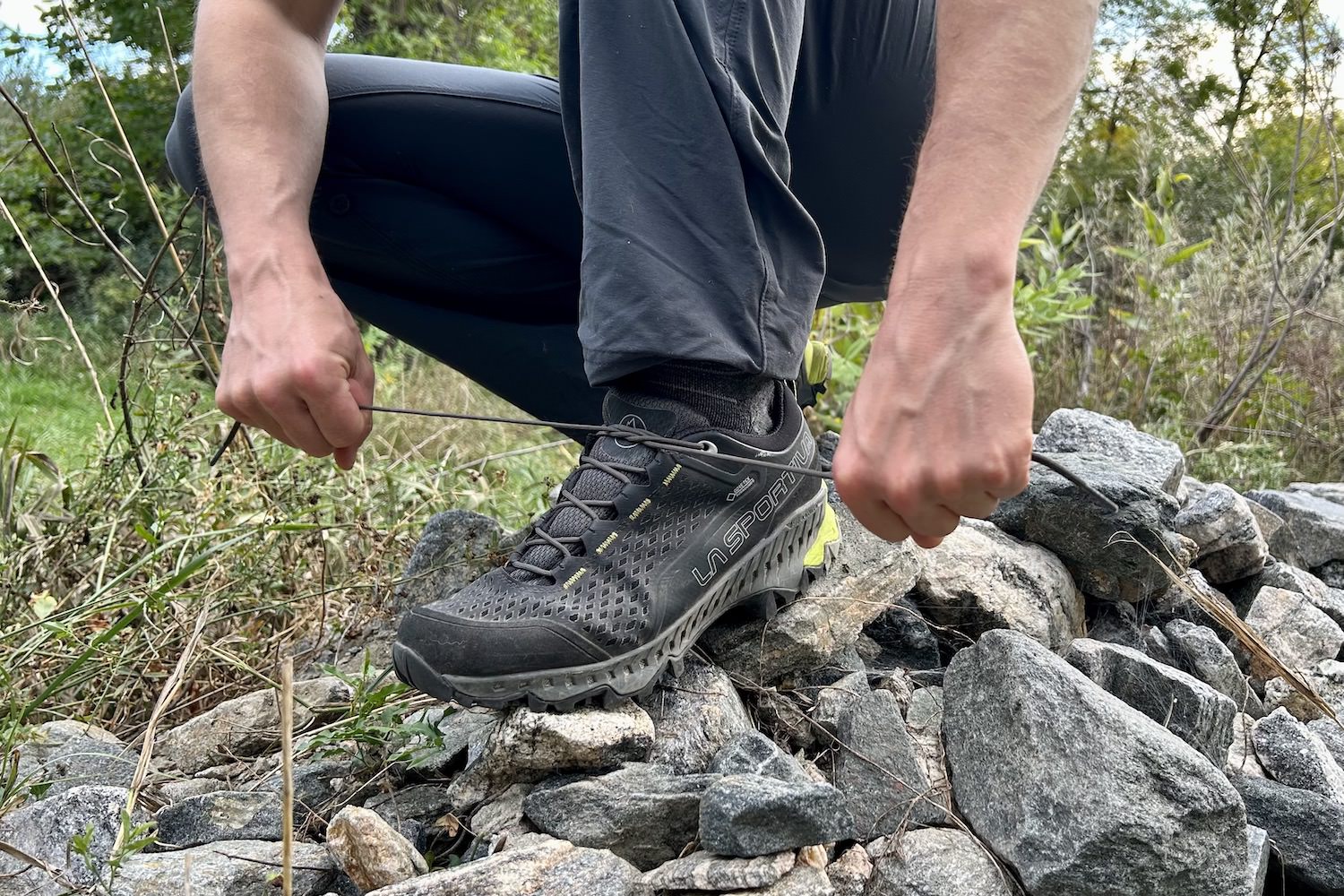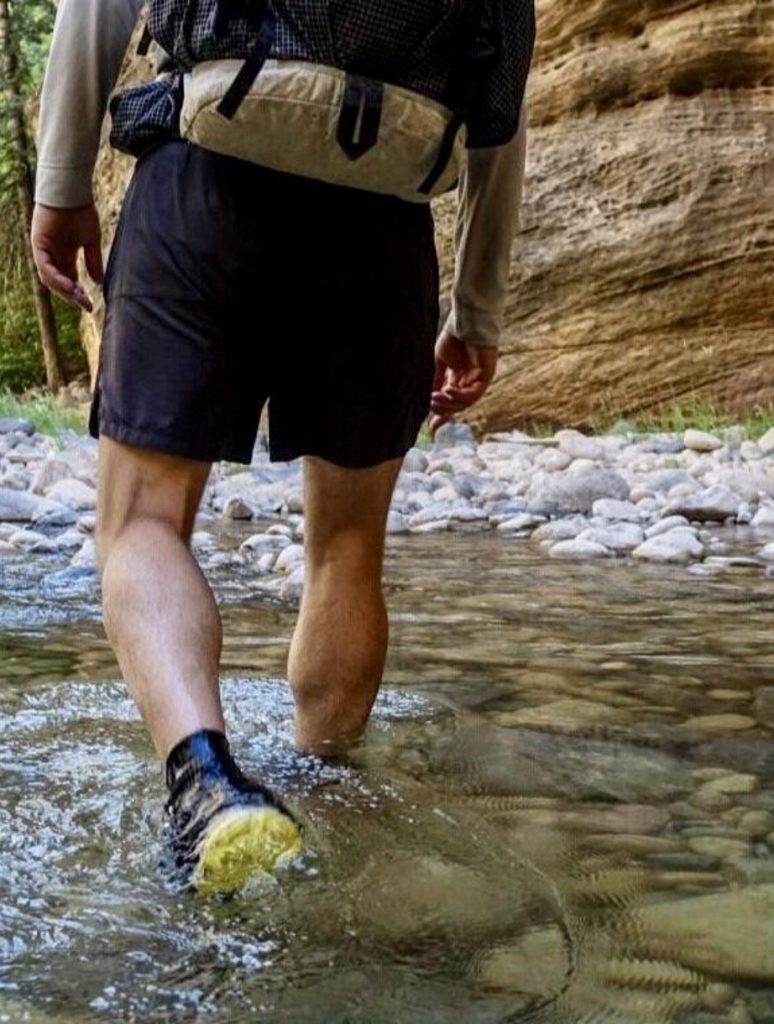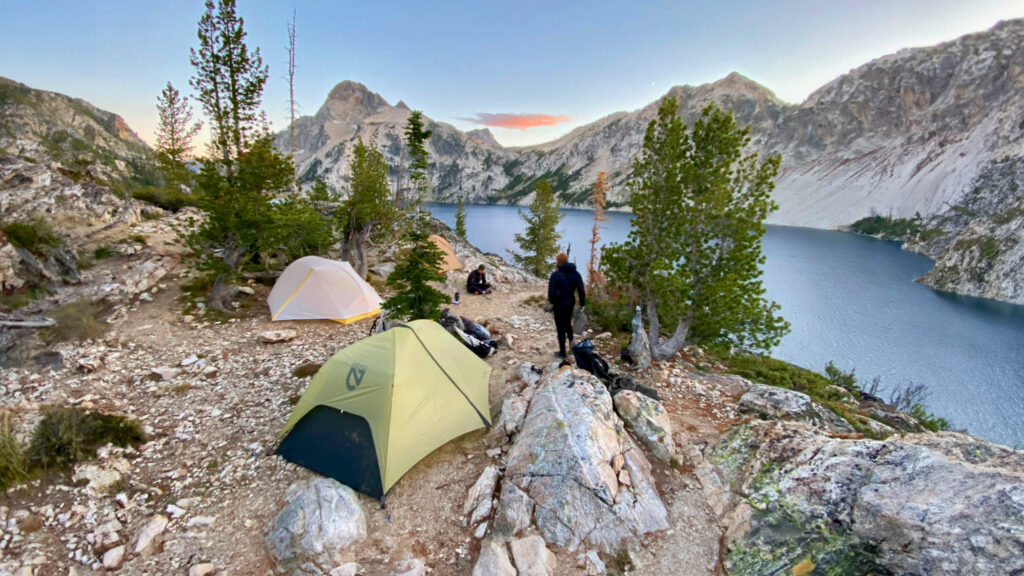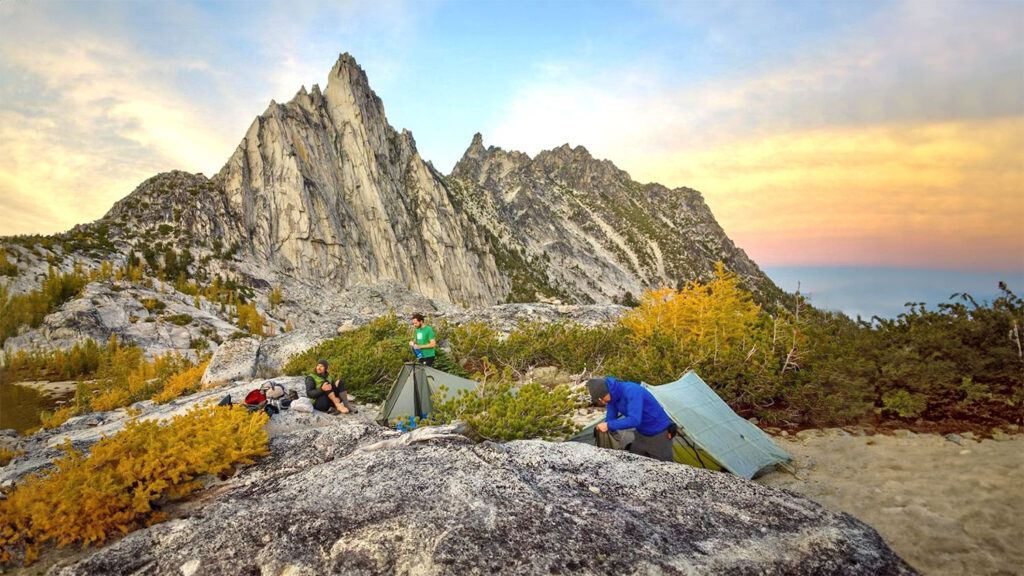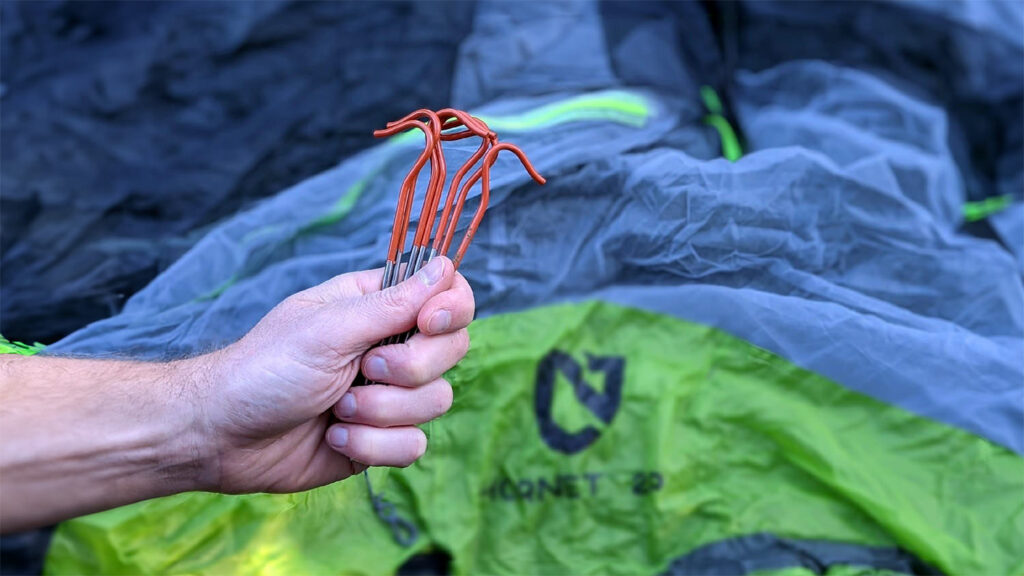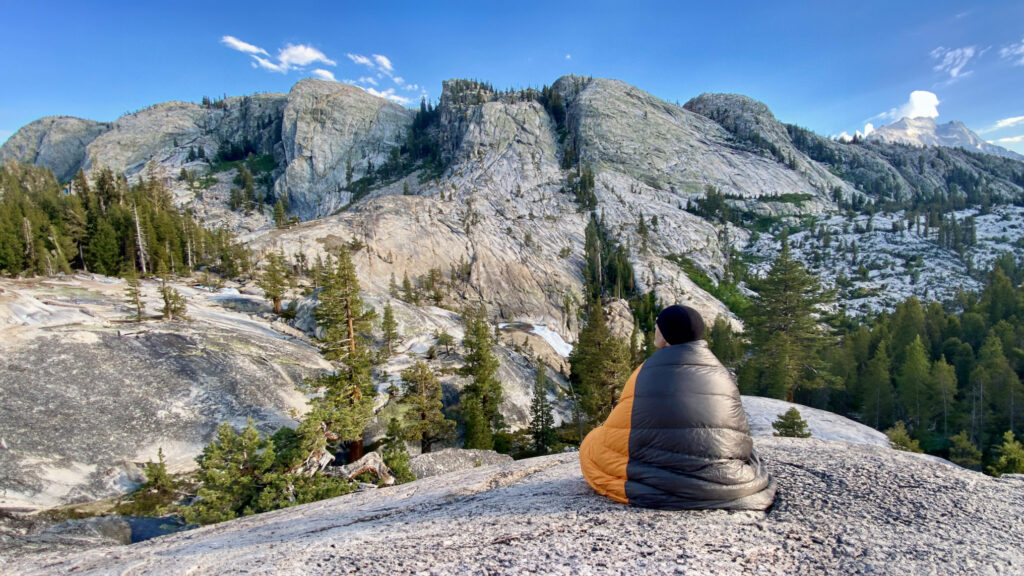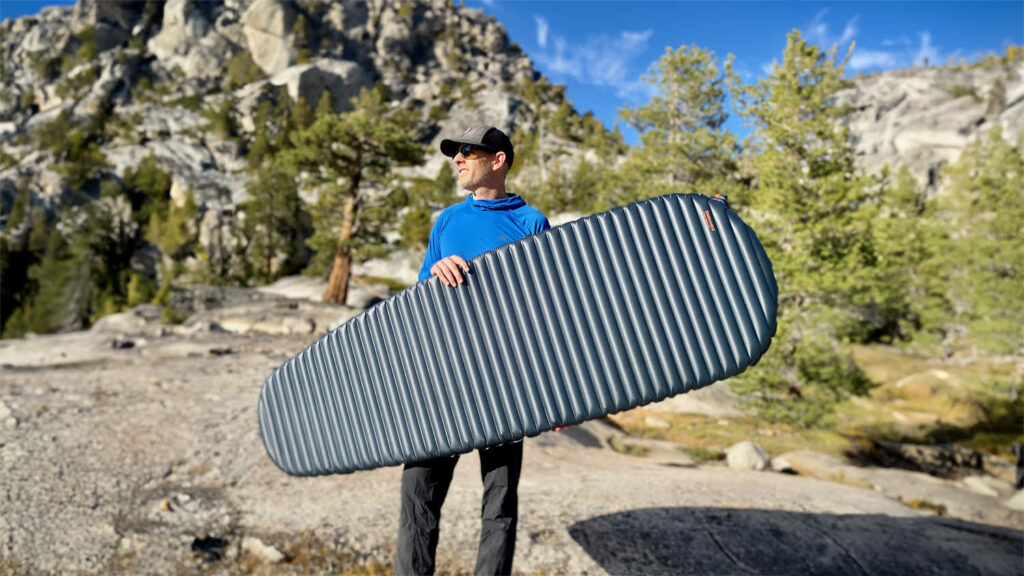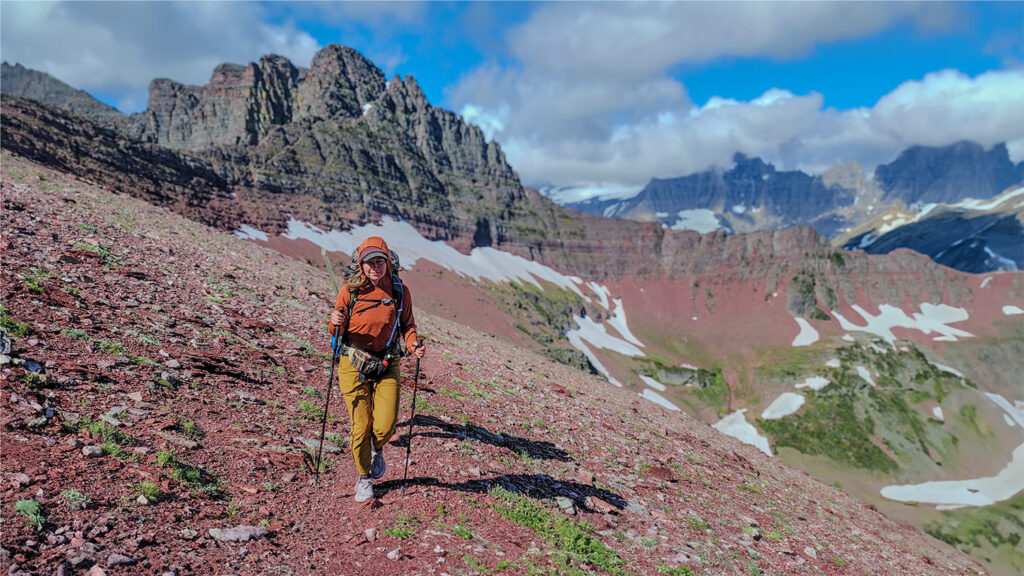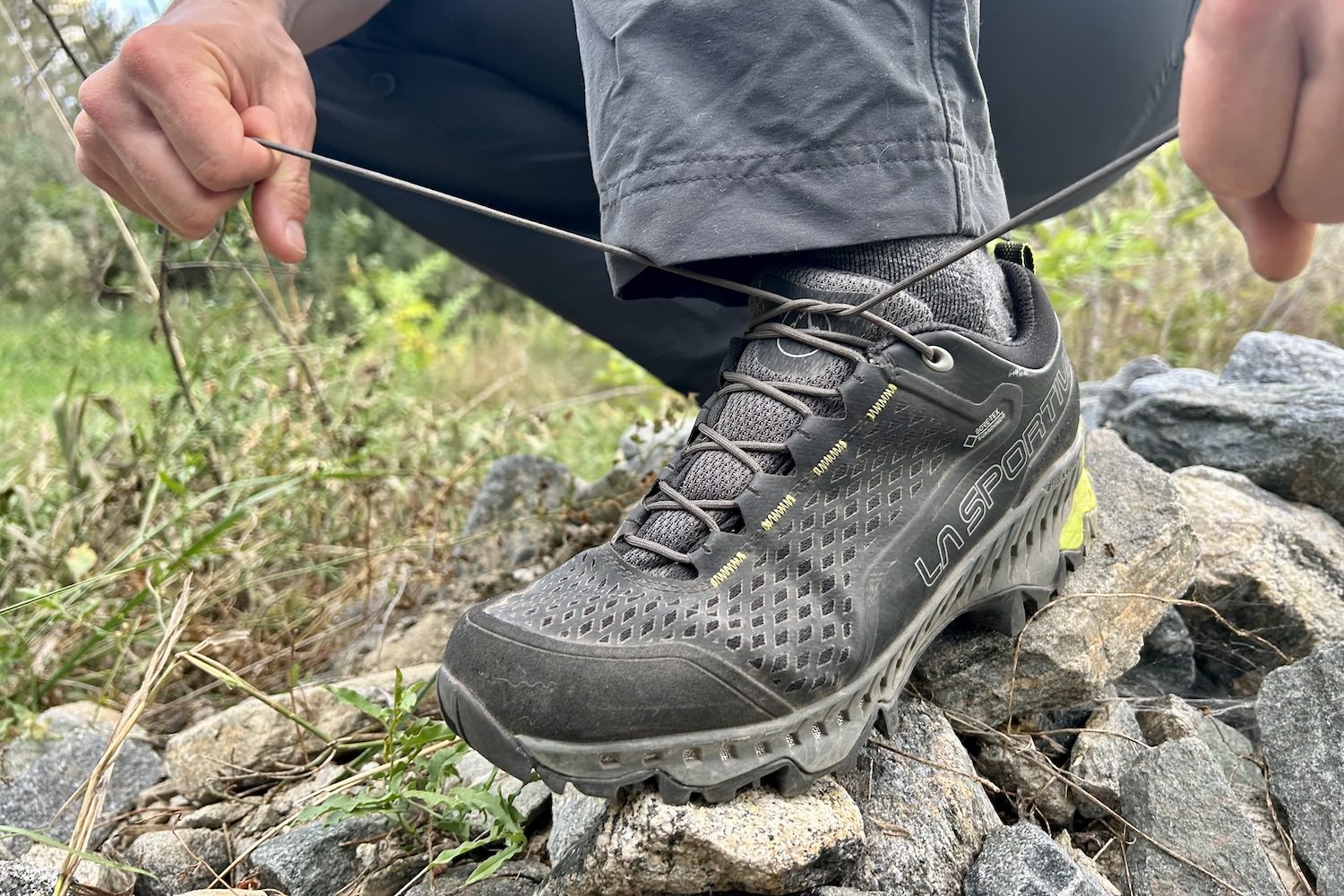
Bottom Line
The La Sportiva Spire GTX is a hiking shoe that looks like a trail runner, making it an excellent footwear choice for short to medium trips and trekking in wet and mucky conditions. We tested these shoes on muddy Cascades trails in the Pacific Northwest spring and Colorado’s tallest peaks in the fall, and they handled like a dream on all the terrain we tackled.
They do an exquisite job of blending the best features of a traditional hiking boot – like stability, great traction, and a waterproof liner – with our favorite aspects of high-quality trail runners – like breathability, comfort, and secure sizing.
However, at around one pound per shoe, they are heavy and require a longer break-in period, and the high heel-to-toe drop isn’t for everyone. Also, all-synthetic uppers are prone to wear and tear. Still, the Spire GTX earns a spot on our list of the best men’s hiking shoes – and they could easily become your go-to pair.
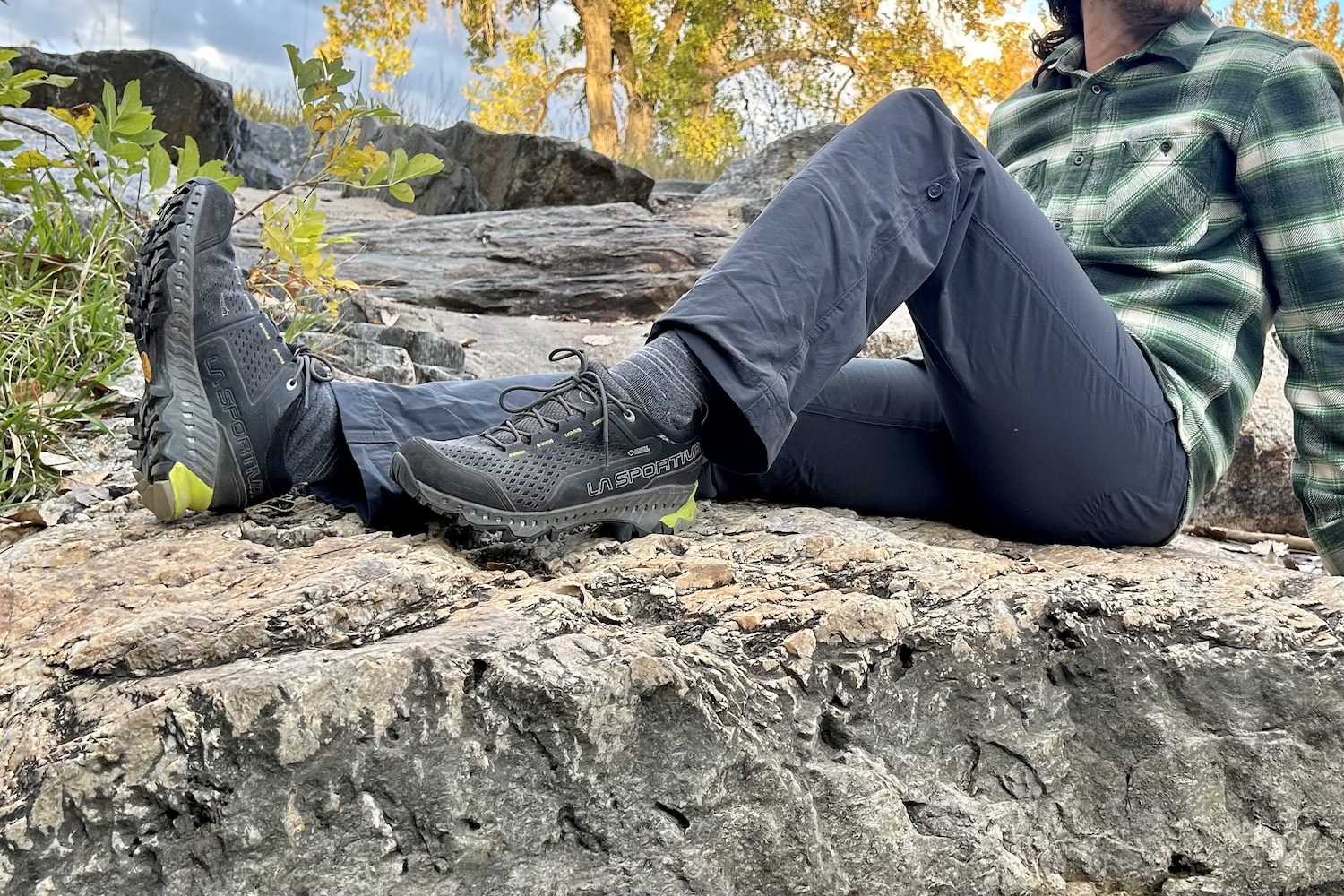
Quick Specs
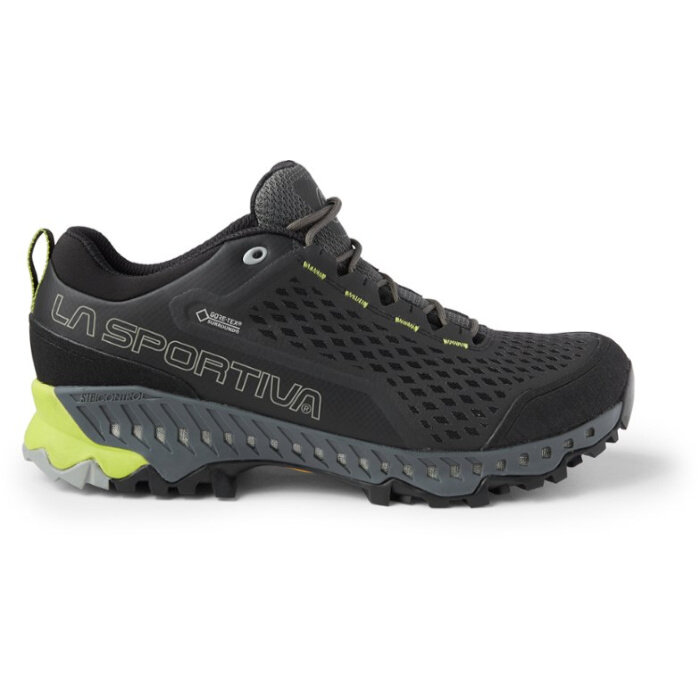
Men’s La Sportiva Spire GTX
Best Shoe-Boot Hybrid
CleverHiker Rating: 79.5/100
Price: $209
Weight (Pair): 1 lb. 15 oz.
Heel-to-Toe Drop: 6 mm
Pros
- Comfortable
- Breathable
- Waterproof
- Stable
- Excellent traction
Cons
- Heavy
- Single-lace eyeholes
- Limited durability
- Long break-in
- Not the best for scrambling
- Expensive
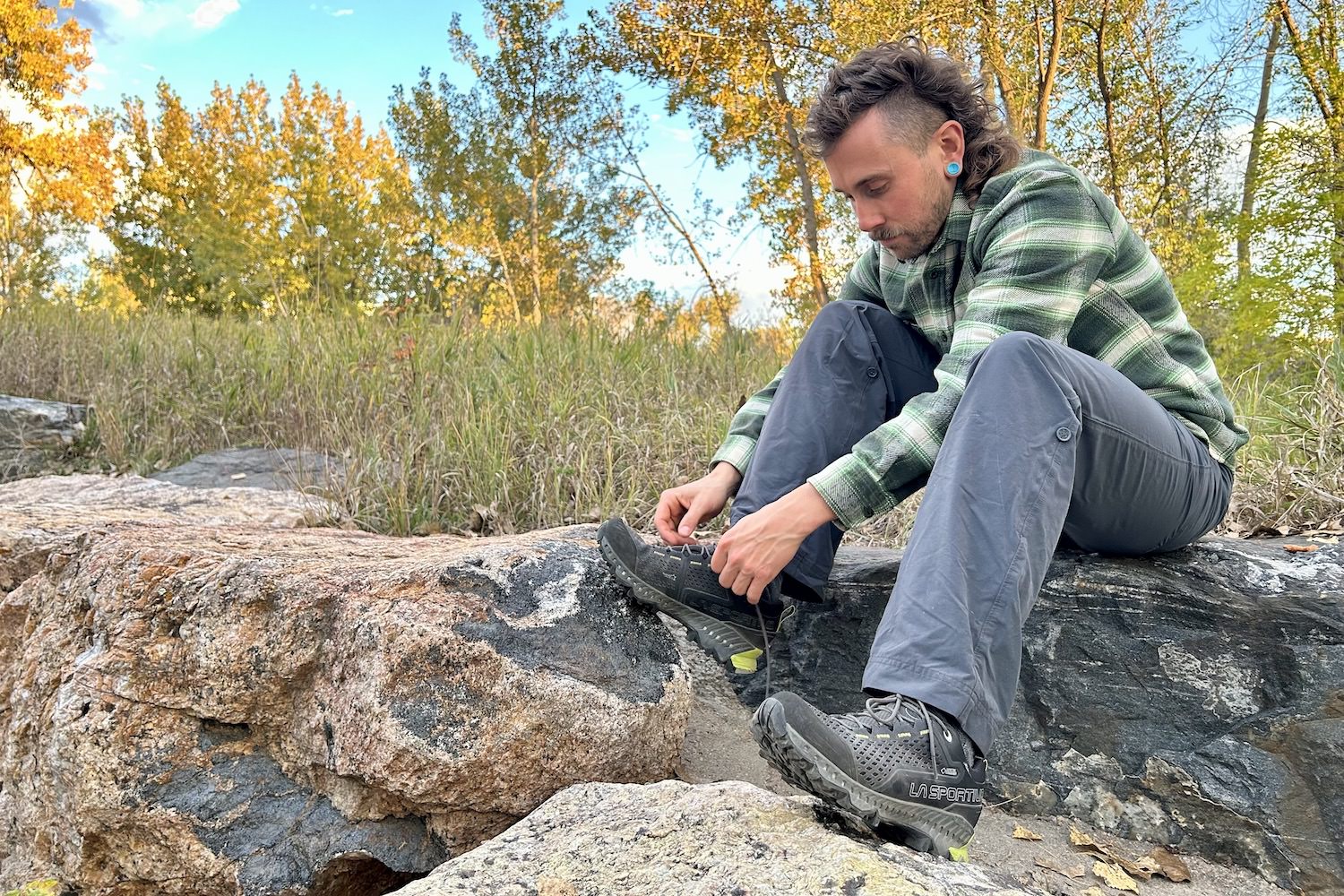
Comfort
Comfort is a hallmark of the Spire GTX. This is the perfect footwear if you love the structure and burliness of a boot, but want the breathability and dexterity of a trail runner. La Sportiva describes the Spire as a “mid-duty hiking boot”, but we think they feel and look like a stout hiking shoe. Thanks to the sturdy midsoles and thick foam, the Spire feels pleasant, nimble, and fast on well-groomed trails, but this shoe really excels on varied and uneven terrain from off-trail exploring to gnarly, rocky alpine ridgelines.
The Spires feature the same compression-molded EVA midsole used in La Sportiva’s long-distance trail runners, so your feet remain cushioned and supported to reduce fatigue on extended hikes. These things feel as solid and stable as you can get in a hiking shoe. The spacious toe box and burly structure provide a secure fit for most foot types, making long hikes more enjoyable. And, we love the European sizing system because it allows for the most precise fit for your feet.
Sitting at 4.1 inches tall, they also have a high cut compared to trail runners, but a low cut versus hiking boots, landing in the sweet spot between the two. If you prefer a medium-to-high drop and a stiff heel, you’ll love the Spire GTX.
However, the Spire GTX has some drawbacks in terms of comfort. The initial break-in period was longer than we wanted, at about 15-20 miles where the shoes felt rigid and firm. This is significantly longer than some of the Spires’ competition, many of which fit well right out of the box, or took only a couple of miles to soften. Once they relaxed, though, it felt like we’d been wearing them for years.
The heel runs wide, potentially causing issues for those needing a snug heel pocket, especially on steep climbs. The single eyelet lace holes limit the ability to customize the fit. And, the midsole and outsole are rigid, which can be inconvenient for hikers seeking out-of-the-box comfort or a long-term, ultra-cushy ride.
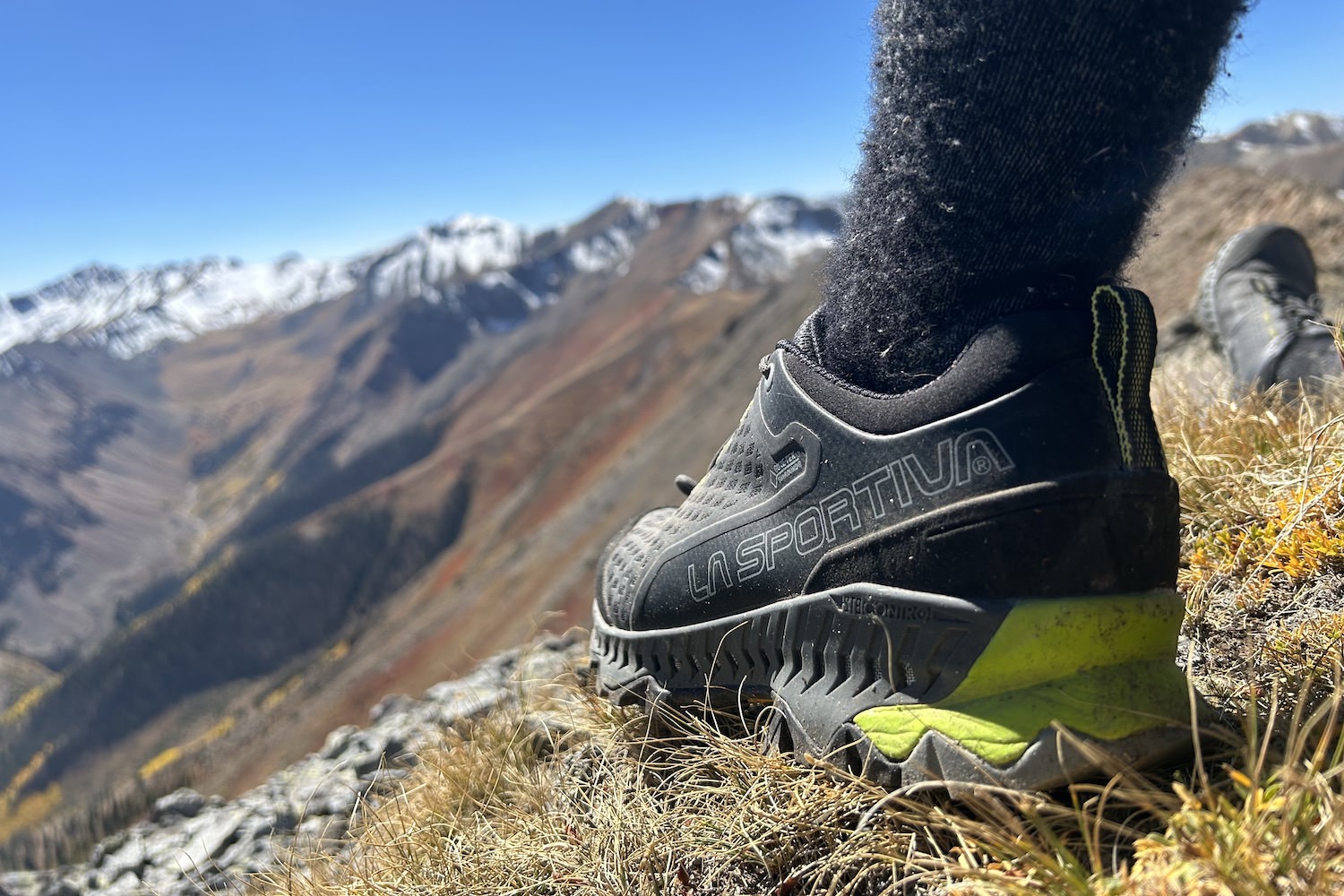
Traction
These are seriously grippy shoes. The Spires are outfitted with the same sticky Vibram XS Trek outsoles that La Sportiva uses on many of its hiking and mountaineering boots, so the shoes feel stable on everything from wet rock to sand and pebbles. We find the self-cleaning outsoles are also remarkably efficient at shedding mud, rocks, and loose dirt, with no issues of clumping or caking after hiking through deep sludge.
La Sportiva also uses its Impact Braking System – a busy grip pattern that offers control on ascents and enhanced traction when coming down inclines that make easy work of trails, grass, mud, and angled terrain.
However, the Spire GTX has a few issues with traction-related comfort. The outsoles remain stiff and never fully soften, especially compared to shoes with more foam in the midsole, which might be an issue for folks who like more ground feel and flexibility in their hiking shoes. We find the lugs in the center of the shoe are slightly rounded and wear down faster, compromising the shoes’ grip power after about 400 miles.
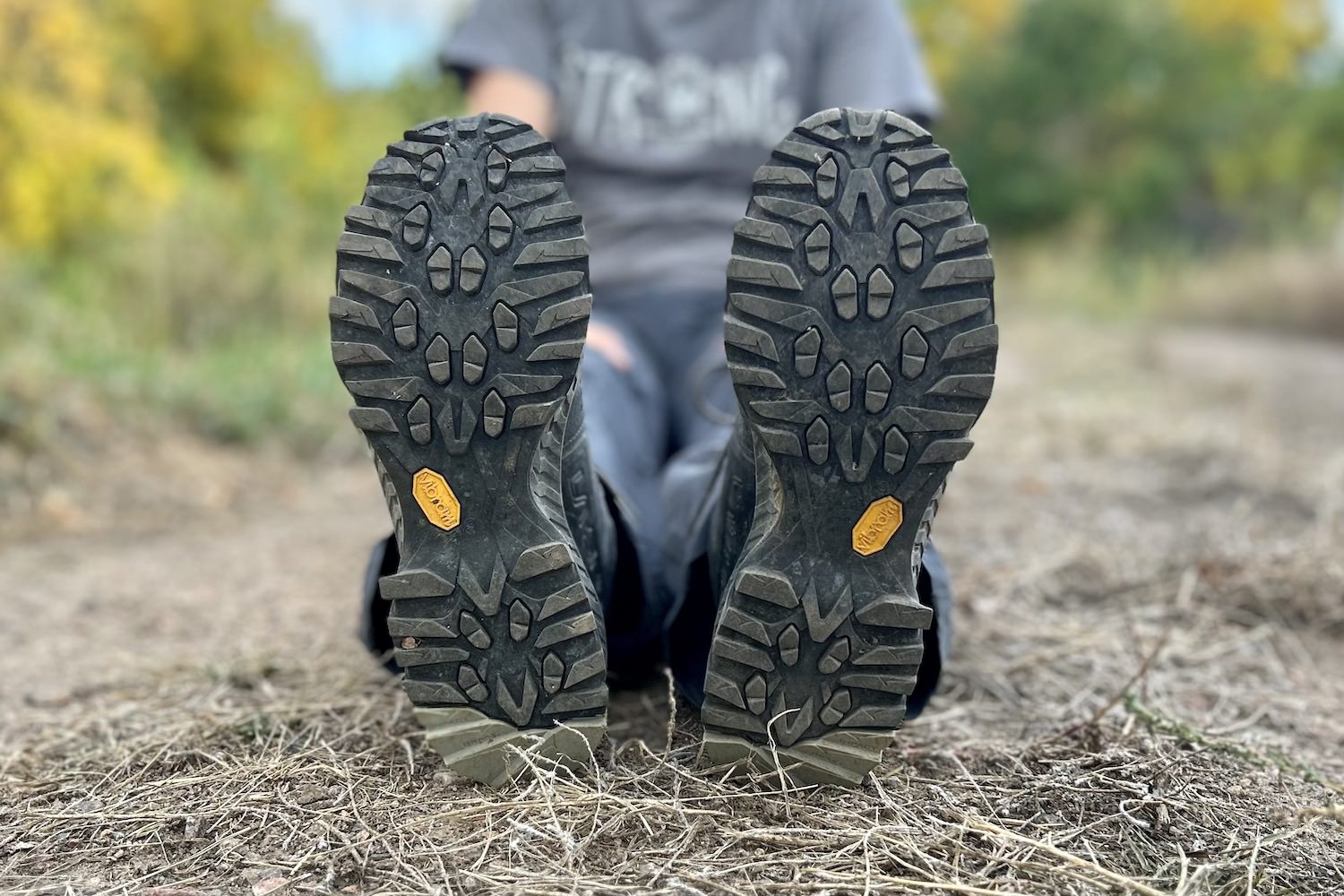
Weight
There’s no way around it: two pounds for a pair of shoes is heavy. Despite the weight penalty, they never feel cumbersome. The Spires are an excellent choice for multi-day adventures as well as shorter excursions. A few extra ounces should not deter you from trying these out, but we do think they are too heavy for extended adventures like thru-hikes which demand more flexibility and lighter soles to keep you comfy as the miles stack up.
The Spire GTX is one of the heavier pairs on our list of Best Men’s Hiking Shoes. Versus even its closest competitors the Spires are notably heavier. If lightweight is your top priority, there are many other lighter waterproof options out there.
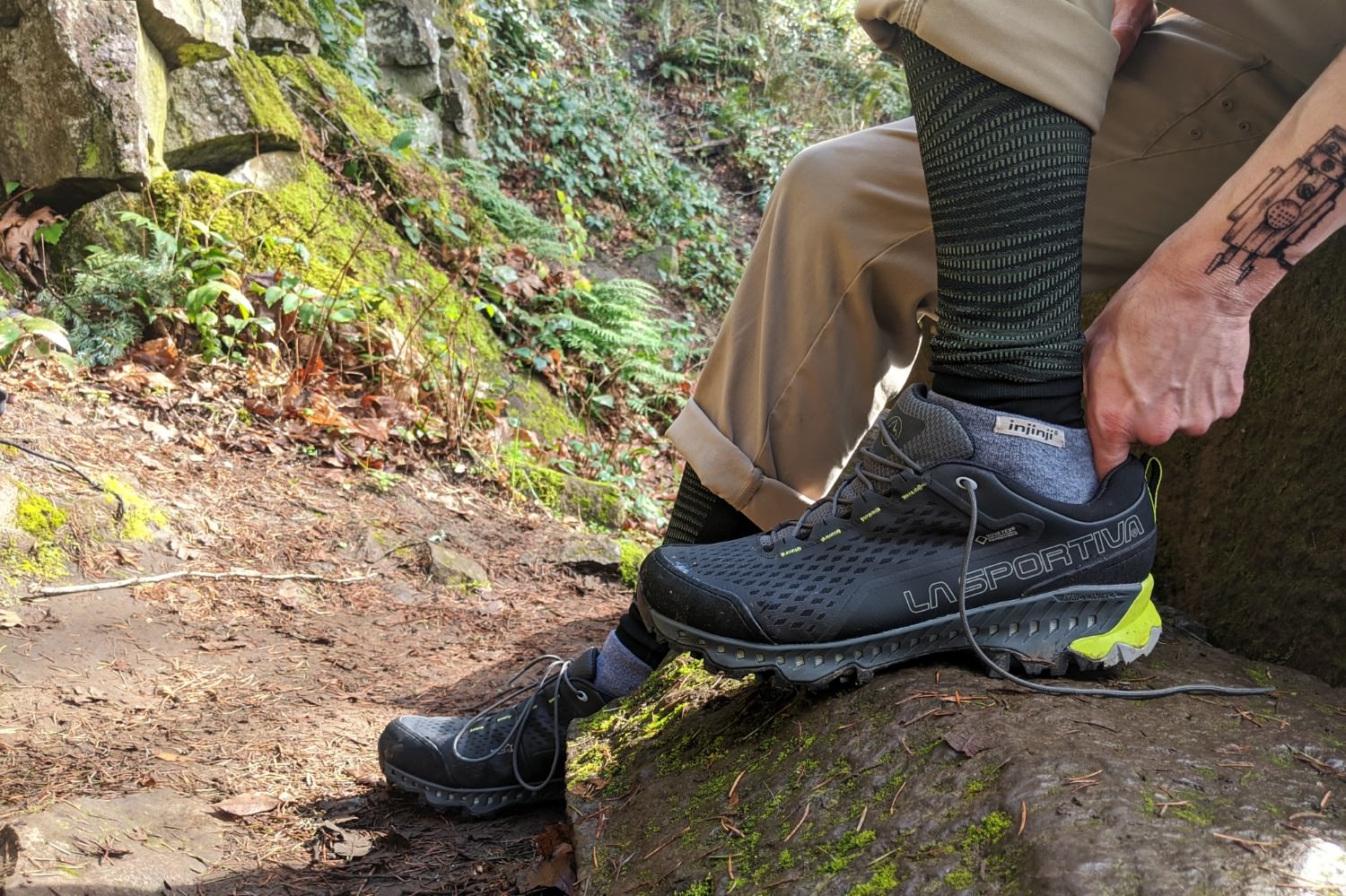
Durability
Every element of the La Sportiva Spire GTX is built for durability, and they are among the longest-lasting hiking shoes we tested, performing well beyond the 500-mile mark. TPU inserts provide flexible support and protection to minimize foot pain on the trail, and their fully waterproof materials and heavier weight make them last forever while making you feel confident and secure in dry, wet, or even snowy conditions.
The beefy toe cap and abrasion-resistant material of the uppers add structure and protection, and the sturdy Vibram outsoles handle scree, rocks, and boulder fields as easily as gravel, sand, and packed trails. Despite being categorized similarly to trail runners, the Spire GTX’s synthetic uppers offer durability we usually only see in the highest-quality hiking boots.
However, the Spire GTXs – like any footwear – will have a much shorter life if you’re using them exclusively in highly demanding terrain. The synthetic uppers, although strong, show wear after about 70 miles – although this is typical of fully synthetic footwear. The construction of these “boots” is the same as most trail runners: mesh wraps from the sides to the top. This material is strong, but typical hiking difficulties like roots, sharp rocks, mud, and consistent abrasion will blow out this fabric. After only 70 miles, we found the artificial uppers began to show wear.
The weakest element of the Spire GTX? The shoelaces, which use synthetic fiber wrapped in a sheath. This sheath tends to wear out, usually long before the shoe does. We recommend buying a backup pair of shoelaces at the time of purchase or swapping them out for a more durable pair immediately.
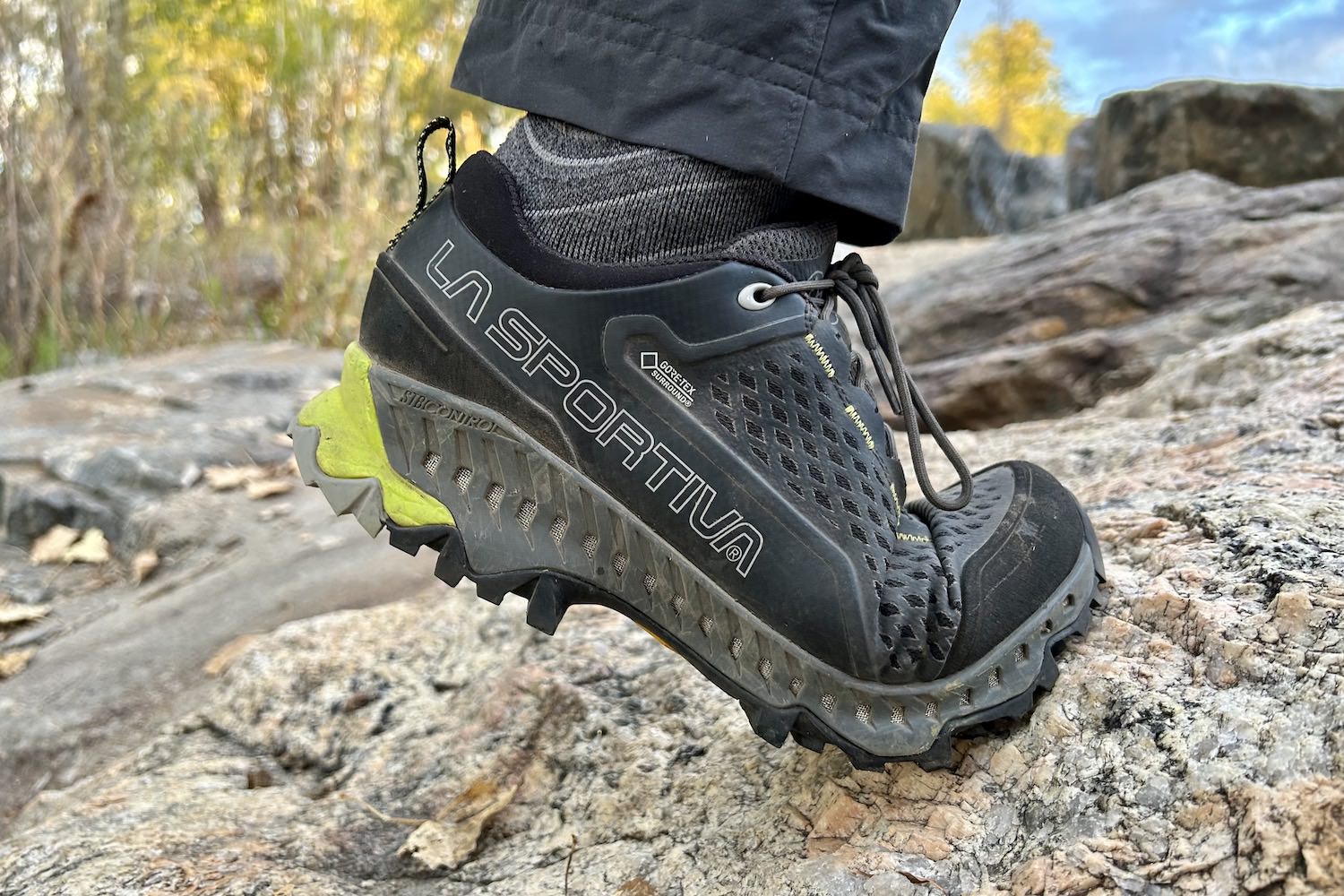
Weather Resistance
These shoes are reliably waterproof. We put the Spires through the wringer over two weeks in soggy fall conditions in the high Colorado Rockies, with multiple hikes through frozen creeks, deep mud, fields of tall grass soaked with the prior night’s rain, and patches of mushy snow. The verdict? These shoes perform. They never allowed moisture in and kept our hooves consistently dry. This level of breathability and waterproofing also makes the Spires an outstanding choice not just for summer, but for frigid and wet spring and fall adventures.
The tongue design is crucial to the water resistance of this pair: it is connected all the way to the collar, so there’s no chance of moisture soaking your socks unless you’re in water over your ankles. And, since they measure over four inches high, it likely won’t matter if you slip into a deep puddle or misstep near a creek.
The Spire GTX ventilates well, to the point where we find they are competitive with some of our favorite trail runners. They are extremely effective at moisture control. That said, this is still a waterproof shoe. When the temperatures are soaring, they still run hot, so we’d recommend other shoes if you’re adventures are in the sun all day, or consistently above 80°F, to avoid discomfort or hot spots.
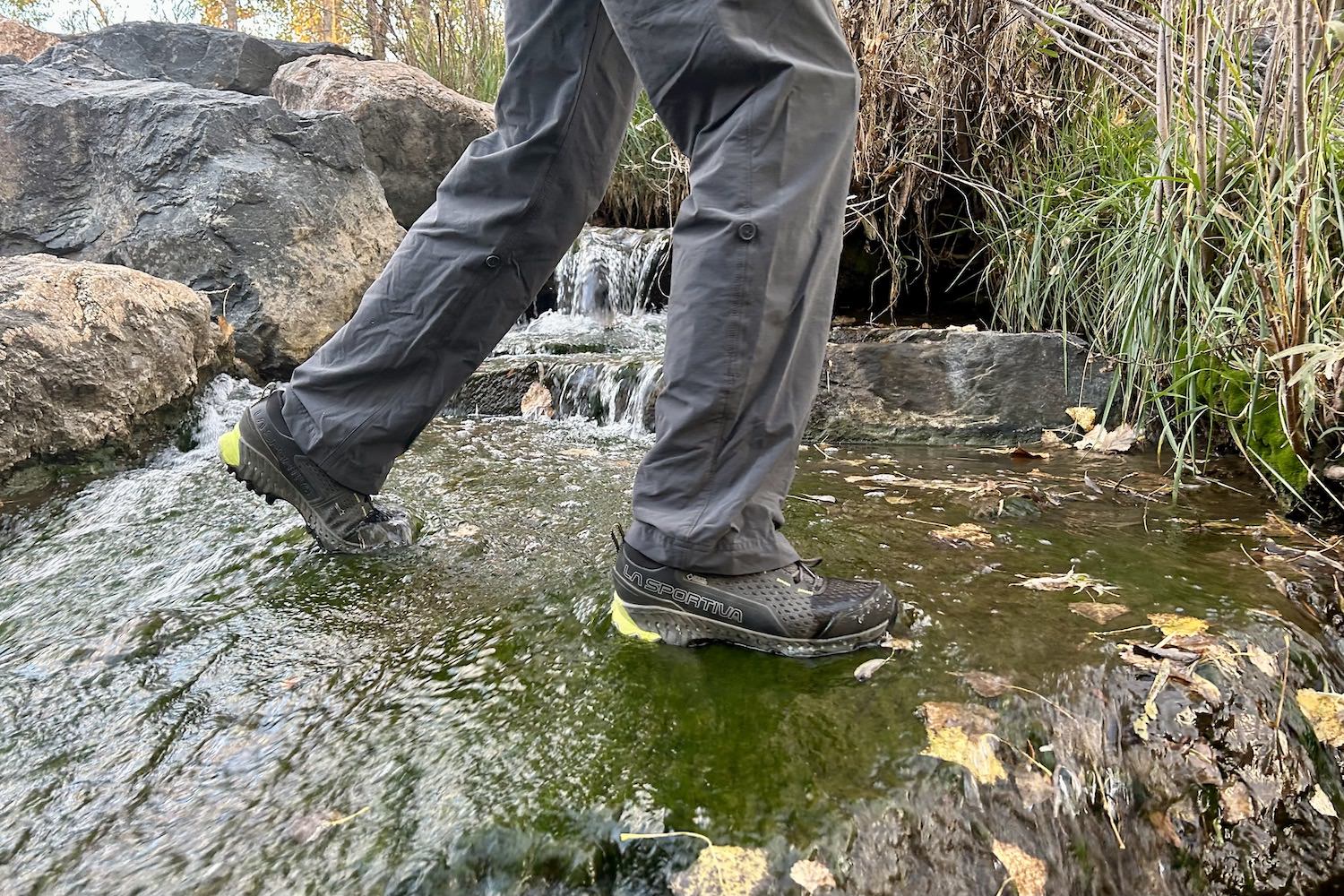
Should You Buy The La Sportiva Spire GTX?
The La Sportiva Spire GTX is for hikers who want a balance between the sturdiness of a boot and the agility of a trail runner. It’s perfect for those who take on varied terrains year round, offering stability on slippery streams, rocky trails, icy and mucky routes, and challenging ascents. The comfy midsoles and sturdy outsoles offer stellar support on long hikes, making the Spires reliable no matter where you’re heading next. With their abrasion-resistant materials and robust construction, they’re built to last over 500 miles of rugged use, making them a top choice for serious hikers.
However, these burly shoes may not be a good fit if you want cushy, out-of-the-box comfort, since they require a medium to long break-in period of 15 to 20 miles. And, the tall stack height and stiff construction can feel wobbly on jagged terrain, and the single eyelet lace holes limit fit customization. For folks who prefer a more flexible shoe for summer hiking conditions, the Spire GTX may be overkill for your needs.
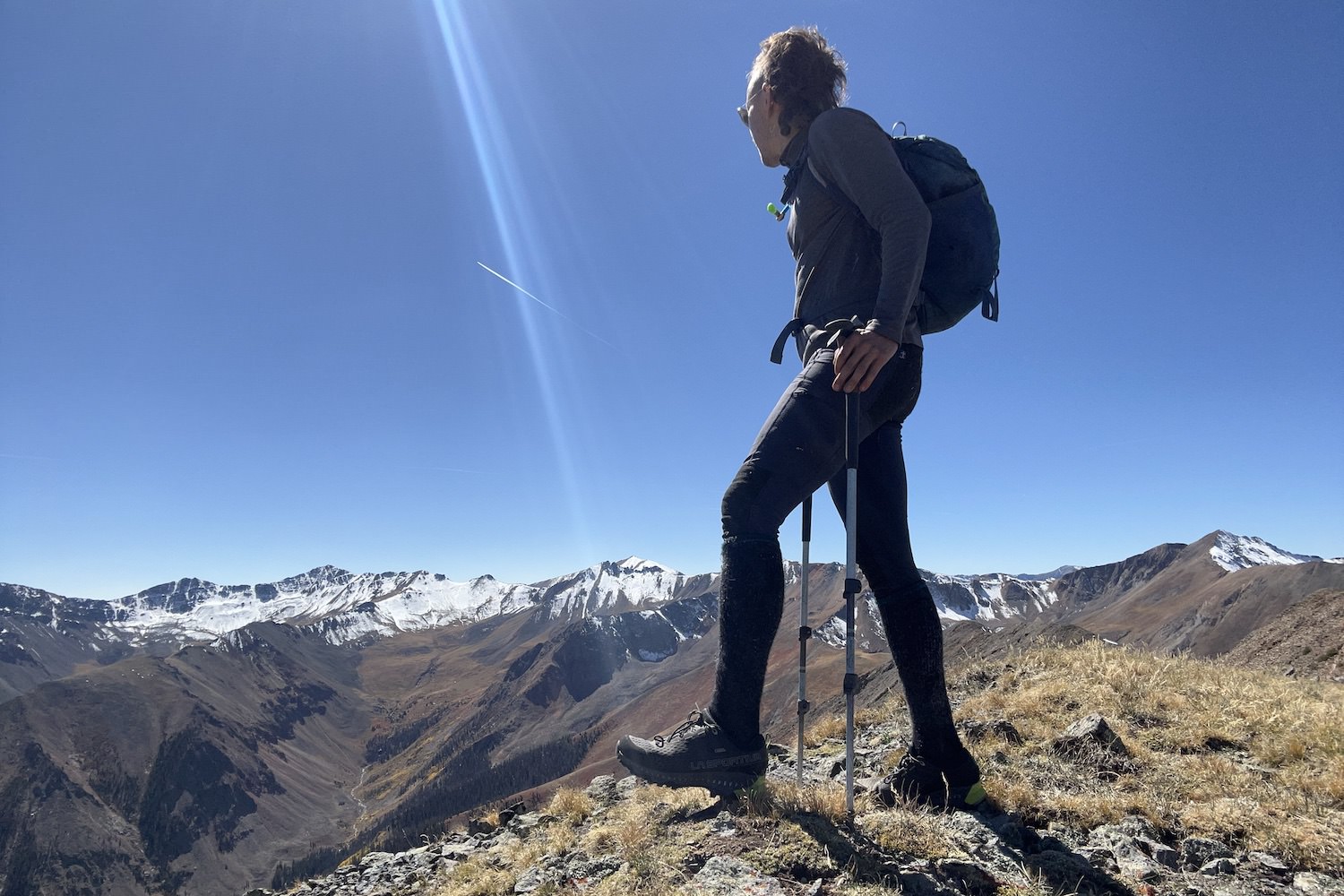
What Other Hiking Shoes Should You Consider?
Salomon X Ultra GTX Review: The Salomon X Ultra GTX offers similar stability, Gore-Tex waterproofing, and versatility across terrain. What sets it apart is a more flexible outsole with equally effective traction, and its Quicklace system makes for fast adjustments for quick transitions and a snug fit.
HOKA Anacapa 2 Low GTX Review: The HOKA Anacapa 2 Low GTX shares the Spire’s reliable, waterproof Gore-Tex lining and narrow midsole. However, the rocker shape and very generous cushioning make these feel much more comfortable and cushy on long treks and descents.
KEEN Targhee IV WP Review: The KEEN Targhee IV WP features the same excellent durability as the Spires thanks to a leather upper and proprietary waterproof membrane, similar to the Spire’s rugged build. However, we prefer the Targhee’s wider toe box and huge toe cap for better foot flexion but similar protection against rocks and roots.
